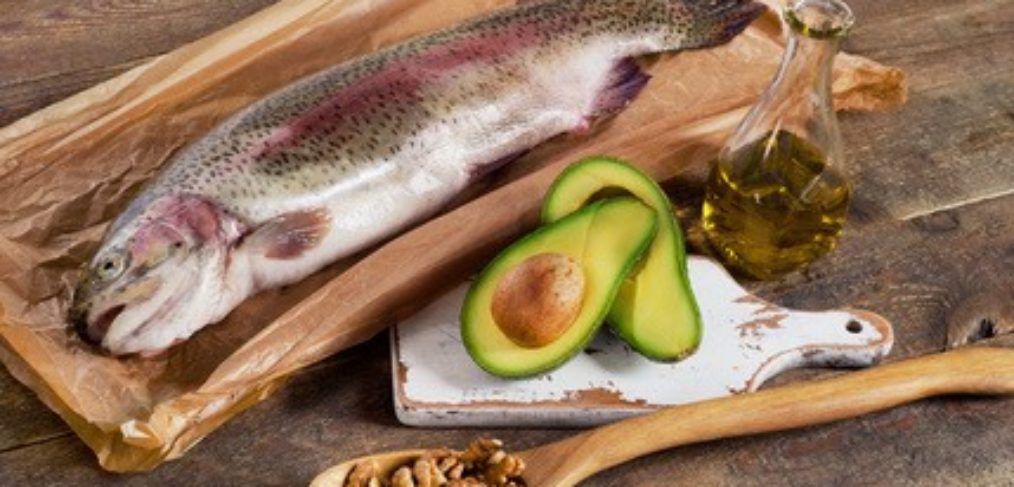
Choosing The Best Source of Omega 3
Fish v Fish Oil: Choosing the best source of Omega 3
If you eat fish you probably do it not only because you like the taste but because it’s good for you. It satisfies our need for protein, it’s a lighter alternative to red meat and the oil is good for us.
If you take fish oil you probably do it because of its anti-inflammatory properties and its long list of amazing functions – it’s good for cardiovascular health, for skin, for joints, for your brain, for fertility – the list goes on.
So how can you tell which is better for you? Does eating fish give you all the reported health benefits of n-3 polyunsaturated fatty acid (Omega 3 PUFA) supplementation equivalent to a high quality capsule or do you still need a supplement?
The straight answer is it’s a little bit complicated and the reason is due to a combination of fish farming and body chemistry.
If you live in a city, or anywhere not by the sea, and you buy your fish at a supermarket, it is highly likely that you are buying fish that has come from some kind of fish farm. Fish that are farmed, particularly salmon, have been found to be higher in Omega 6 oils that are pro inflammatory than the good Omega 3 oils found in wild fish that are anti-inflammatory. http://www.ncbi.nlm.nih.gov/pubmed/25017007)
The difference in Omega 3 versus Omega 6 is due to the fish’s diet. Depending on the farm and the farming ethics and practices, farmed salmon can be fed a variety of fishmeal food comprised of smaller fish, chicken, and grains such as soy and corn. And just as grain fed cows have higher Omega 6 than their grass fed pals, grain fed fish have higher omega 6 too.
Australian fish farms are some of the best in the business, or so say the Australian Salmonoid Growers Association, with higher omega 3 content and lower use of antibiotics quoted as being their saving grace, but how do they stand up on the Omega 3/Omega 6 issue?
In 2014 the CSIRO got into the farmed fish picture and published a study that found while Australian farmed salmon were once very high in Omega 3 and had an Omega3/Omega6 ratio of 5:1, that figure has dropped in 2014 to a ratio of 1:1, with average Omega 3 dropping by 50%. The drop has been attributed to adding poultry oil to fishmeal feed in place of oil from smaller fish in the natural food chain. (http://www.ncbi.nlm.nih.gov/pubmed/24618601)
So should we just take a fish oil supplement instead and be done with it?
Well you could, and I certainly recommend supplementing with the right type of fish oil for some of my patients – especially those with inflammatory conditions such as arthritis or cardiovascular disease, but there’s yet another piece of the puzzle to come.
Back in 2003 a scientist in Milan made a very interesting discovery. Francesco Visioli compared the concentration of EPA and DHA (Omega 3 constituents) in blood plasma after consumption of either a piece of salmon or a couple of capsules of high quality fish oil. The study divided participants into 2 groups: The real fish group was given 100 grams per day of salmon to eat (they don’t state whether wild or farmed) and the supplement group was given 1-3 capsules of concentrated fish oil, then a blood sample was taken and the amount of EPA and DHA that had been absorbed into the blood plasma one hour after consumption was measured. http://www.ncbi.nlm.nih.gov/pubmed/12848287
If you thought the group eating fish would have a higher concentration because it’s a whole food source – you’d be right! The group eating the piece of fish had double the EPA and DHA recorded in their blood plasma after 1 hour and 9 times more after 6 weeks of daily intake than the fish oil group!
How you may wonder, does fleshy fish deliver more oil than a concentrated extract? The theory now goes like this: Fresh fish contains other oils and nutritional constituents (namely selenium and vitamin D) that enable the effective absorption of EPA and DHA from the fish and make it a more reliable and concentrated source of EPA and DHA for the body than concentrated fish oil capsules are able to do. Another way to look at it is to say in order to match the effectiveness of eating a 100g piece of salmon every day you would have to take 9 x the dose of concentrated fish oil just to match the bioavailability factor – That’s huge.
Before we can stand up on a soap box and make the statement that eating fish everyday is hands down the best thing you can do, there are other factors at play that this research doesn’t take into consideration. Namely are you a good detoxifier? The ocean naturally contains inorganic mercury within the seawater. Inorganic mercury concentrates in the flesh of the fish, not the oil and by the time small fish have been eaten by medium fish and medium fish by bigger fish, when you eat large fish you are getting a dose of inorganic mercury into your system. Some people can tolerate this without a problem and process it efficiently and quickly while in others it can linger and lead to other health problems. I’ll be writing another article about good and bad detoxifiers soon. For now suffice to say it’s a good idea to look up a table of fish with high levels of mercury and don’t eat a lot of the high ones. Salmon has very low levels f accumulated mercury
But what if you don’t like fish, or you have an allergy (like me ☹) , or you only have access to farmed fish for proximity or financial reasons?
There is still a way to get ahead. Scientists at the Oregon Health Sciences University, found that you can increase your ability to absorb supplemented EPA and DHA from the gut into the blood stream where it can be used by cells, by consuming them with a high fat meal – something simple like Olive oil would make all the difference. http://www.ncbi.nlm.nih.gov/pubmed/1826985
So whether you love eating fish or you don’t, there’s always a way for you to get more Omega 3’s into your diet and your body will thank you.
How do you choose between wild fish, farmed fish and concentrated fish oil?
Here are the main points again in a nutshell:
- Farmed fish are higher in Omega 6 and lower in omega 3 than wild fish and therefore not as good for you.
- Farmed fish have the potential to have high Omega 3 content but it depends on what the fish are fed.
- Australian fish farms aren’t necessarily better than overseas farms in terms of the fish’s Omega 3 content so do your research and find out where your fish comes from and what it’s fed.
- If you can get your hands on wild caught fish (salmon is the highest in EPA/DHA), a 100g piece 3 times per week should be enough to give you your EPA/DHA needs.
- IF you don’t eat fish or only have access to farmed fish, a high quality fish oil supplement taken with a meal including olive oil, avocado, nuts or other good oils will increase its absorption.
Note – I haven’t been able to source any studies on the omega 3 content of tinned salmon but I’m still looking. I have heard it said that wild Alaskan tinned salmon is an excellent source of omega 3 and the vitamin D and Selenium in the fish is enough to prevent the absorption of mercury from the fish and aluminium and BPH from the tin. It sounds mostly reasonable (depending on the detoxification capacity of the individual) but I haven’t yet found the evidence.
More related blog posts to come:
When turning to Fish oil, how do you choose?
Are you a good or bad detoxifier and how can you tell?,h


